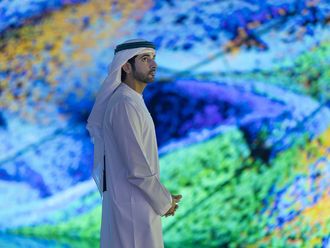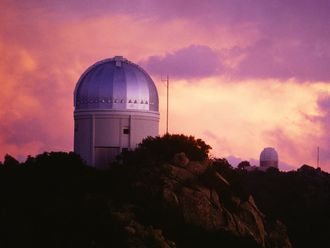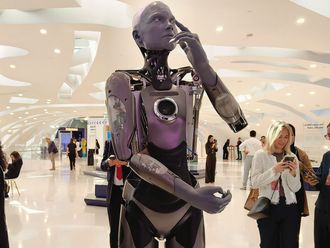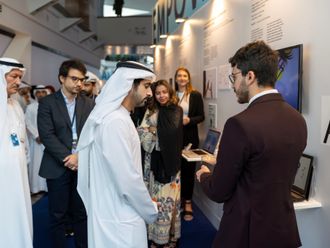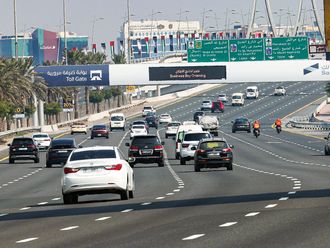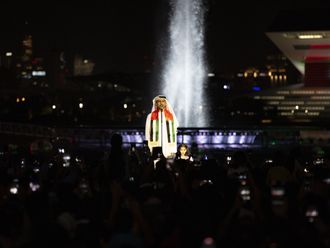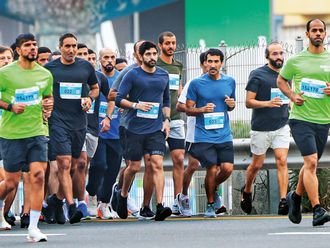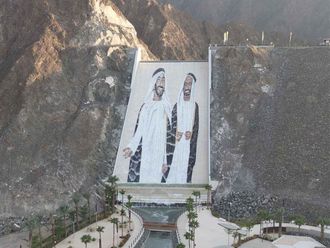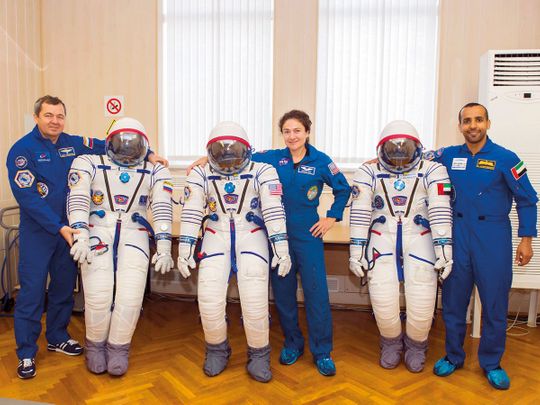
Dubai: The UAE’s first Emirati astronaut Hazza Al Mansoori, along with the prime and reserve astronauts for the September 25 spaceflight, have completed their first training and fit-check on the actual Soyuz spacecraft that will launch to them to the International Space Station (ISS).
After a year of training on Soyuz simulators at the Gagarin Cosmonaut Training Centre, the prime and backup crews have finally begun their final pre-flight preparations with the Soyuz MS-15 spacecraft at the Baikonur Cosmodrome in Kazakhstan.
Prime crew Russian commander Oleg Skripochka, Nasa astronaut Jessica Meir and Hazza and backup crews led by Russian commander Sergey Ryzhikov, Nasa astronaut Thomas Marshburn and Emirati astronaut Sultan Al Neyadi arrived at the assembly and testing facility at the pad No. 254 to take the first training and fit-check. Fit-checks are done to ensure the fit of their Sokol spacesuits and test them for leaks. They also test their seats on the spacecraft that were customised for them to cushion the impact of lift-off and landing on their bodies.
In a tweet on Thursday, Hazza said: “We finished the first fit-check of the Soyuz MS-15 where we checked our Sokol and all aspects of the equipment, devices, and payloads inside the Soyuz.”
Hazza shared photos of himself inside the Soyuz spacecraft for the first time, a photo of him with the team and also while seated on the spacecraft seat.
During the first fit check, the tea, also checked the equipment they are going to work with in space. They also got acquainted with the onboard documentation and studied the flight programme and the list of cargo planned for delivery to the ISS.
On Thursday, the main crew and the backup crew also raised the UAE flag during the flag-raising ceremony that was held for the countries participating in the mission – UAE, Russia, and USA. They then visited the Baikonur Cosmodrome Museum, which includes space equipment and miniature models of rockets that have launched to space.
As part of the scheduled activity, the crew members signed on the wall of Sergei Korolev, the lead Soviet rocket engineer in the 1940s and 1950s.
The next two weeks will focus on trainings on the manual berthing to the ISS, scientific equipment kits checks, ballistic operations training and other preparations, according to Roscosmos in Russia.


